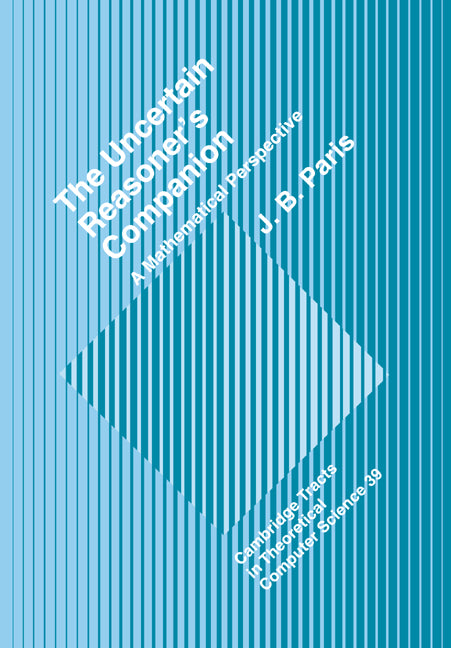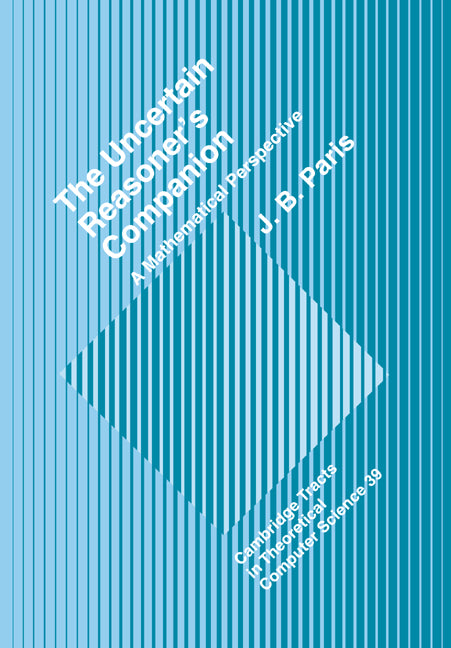Freshly Printed - allow 8 days lead
Couldn't load pickup availability
The Uncertain Reasoner's Companion
A Mathematical Perspective
This is an introduction to the mathematical foundations of uncertain reasoning.
J. B. Paris (Author)
9780521032728, Cambridge University Press
Paperback / softback, published 23 November 2006
224 pages
22.8 x 15.2 x 1.3 cm, 0.361 kg
"This work is an outstanding mathematical treatment of uncertainty in knowledge-based systems. It provides, in a uunified manner, the needed fundamentals for theoretical approaches." L. State, Computing Reviews
Reasoning under uncertainty, that is, making judgements with only partial knowledge, is a major theme in artificial intelligence. Professor Paris provides here an introduction to the mathematical foundations of the subject. It is suited for readers with some knowledge of undergraduate mathematics but is otherwise self-contained, collecting together the key results on the subject and formalizing within a unified framework the main contemporary approaches and assumptions. The author has concentrated on giving clear mathematical formulations, analyses, justifications and consequences of the main theories about uncertain reasoning, so the book can serve as a textbook for beginners or as a starting point for further basic research into the subject. It will be welcomed by graduate students and research workers in logic, philosophy and computer science as an account of how mathematics and artificial intelligence can complement and enrich each other.
Introduction
1. Motivation
2. Belief as probability
3. Justifying belief as probability
4. Dempster-Shafer belief
5. Truth-functional belief
6. Inference processes
7. Principles of uncertain reasoning
8. Belief revision
9. Independence
10. Computational feasibility
11. Uncertain reasoning in the predicate calculus
12. Principles of predicate uncertain reasoning
Glossary
Bibliography
Index.
Subject Areas: Mathematical theory of computation [UYA], Web programming [UMW], Mathematical logic [PBCD]


